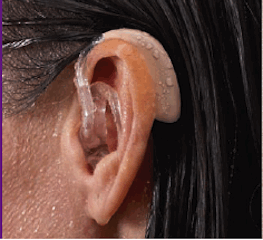I hope that everyone who reads this feels as I do, that what they do is important. But if you are on the fence, just read the press release below (and if you want to really dig into it, read the full article).
To my mind, our sense of hearing is the most important because it connects us with each other. None of the other the senses have this superpower. Our brains are designed for connection. (Read “Social: Why Our Brains are Wired to Connect” by Matthew Lieberman). We are able to read each others’ minds and connect with others in mysterious ways, and the route of transmission is primarily speech and hearing.
The article described below reinforces the already myriad articles that have told us how use of hearing aids improves quality of life. But beyond that, this is the first study I have seen that dares to suggest that use of hearing instruments can actually improve cognitive function for some people. (OK – n=100 – certainly not definitive. But certainly tantalizing.)
The press release below outlines some of the more important findings.
I preface the release by quoting the final sentence of the conclusion to the full article. As I have been saying for a while now, the message to our patients regarding the correlation between hearing loss and cognitive decline is not a message of fear, but rather one of hope because: HEARING AIDS HELP!
“Unbeknownst to us, as long as people in our profession have been fitting hearing aids, we have benefited all of mankind by positively affecting the quality of life and cognitive function of millions of people.”
I have this quote up in my office as an affirmation:

Want an affirmation of the importance of what we do? Print this up and put it on your wall — We do important work!
That is an important legacy of which we should be proud!
“For the greater number of older adults who are now living for longer, the results of this study suggest that it may be possible, through early identification and appropriate management of hearing loss, to enjoy living to a greater age, free of dementia.”
Press release – University of Melbourne
University of Melbourne researchers have tested the use of hearing aids in almost 100 adults aged 62-82 years with hearing loss. Participants were assessed before and 18 months after having hearing aids fitted on their hearing, cognitive function, speech perception, quality of life, physical activity, loneliness, mood and medical health. After 18 months of hearing aid use, researchers found speech perception, self-reported listening disability and quality of life had significantly improved for participants.
Most notably, 97.3 per cent of participants in this study showed either clinically significant improvement or stability in executive function — their mental ability to plan, organise information and initiate tasks. Women, in particular, showed significant improvements in working memory — used for reasoning and decision-making — as well as most other cognitive functions assessed.
The study also found more frequent use of hearing aids was associated with greater improvements in cognitive function, and women were much more diligent at wearing the devices than men.
University of Melbourne Associate Professor and Chief Investigator of the study, Julia Sarant, said “Improvement in cognitive function is something that is not usually seen in older adults…..Although there are successful treatments for hearing loss, there is currently no successful treatment for cognitive decline or dementia,” Associate Professor Sarant said. “This research is a positive step in investigating the treatment of hearing aids to delay cognitive decline…..Further research is underway to compare cognitive outcomes from a larger sample size with those of a healthy aging comparison group of older Australians with typical hearing for their age.”
Journal Reference:
- Julia Sarant, David Harris, Peter Busby, Paul Maruff, Adrian Schembri, Ulrike Lemke, Stefan Launer. The Effect of Hearing Aid Use on Cognition in Older Adults: Can We Delay Decline or Even Improve Cognitive Function? Journal of Clinical Medicine, 2020; 9 (1): 254 DOI: 10.3390/jcm9010254






